Social Media is making it harder for brands to pay lip service on social issues
Over the month of June, people around the world celebrate Pride Month, in a time that marks a seminal moment in the fight for LGBTQIA+ rights, the Stonewall riots. The riots were a series of spontaneous demonstrations by trans and gay community members in response to a police raid in the early hours of June 28, 1969 at the Stonewall Inn in Greenwich Village, New York.
The riots are widely considered a watershed event that transformed the gay liberation movement and the fight for equal rights in the USA and around the world. And yet the pride events of today are very different from the pride events of history, as more and more corporate brands jump on the queer bandwagon to bolster their image.
In an article by Khoros.com posted in May 2022, author Spike Jones states that brands are now well aware that speaking up about social causes benefits them.
Jones writes, “The 2017 Edelman Earned Brand Study found that “51% [of consumers] will be more loyal buyers of a brand that speaks up, compared with those that remain silent.”
In the same article, Jones states that according to Cone Communications, “Millennials represent $2.45 trillion in spending power and are 60% more likely to engage with brands that discuss social causes.”
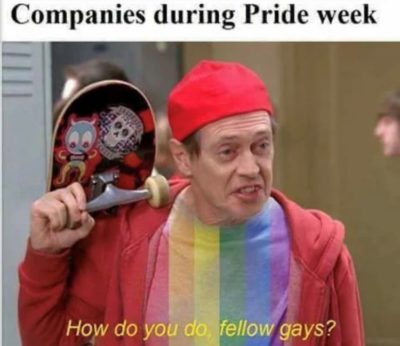
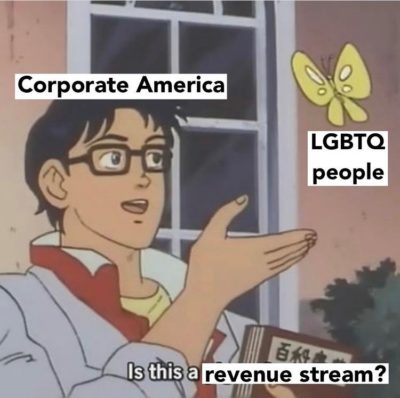

But the distinction between action and lip-service is becoming increasingly obvious to a community of savvy, socially engaged and connected consumers. If a brand cannot demonstrate how they are directly advocating for and planning to support the LGBTQIA+ community, they have no business joining trending conversations.
In an article in Vogue magazine, queer columnist Raven Smith speaks to this phenomenon writing, “Something about the collision of the corporate and the celebratory gets under their skin. Perhaps it’s the gaping discrepancy between the historic and current difficulties faced by LGBTQ+ peoples versus the deceptive simplicity of a T-shirt, say, or a lunchbox or a LGBT sandwich.”
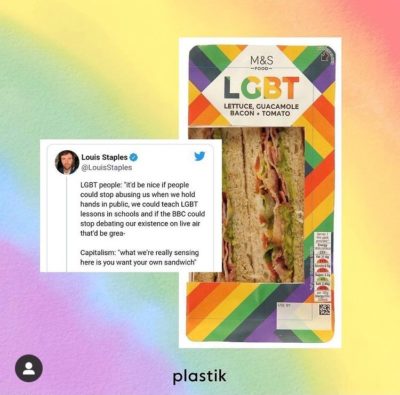
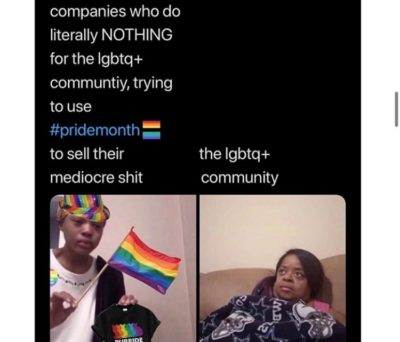
It’s a trend that has become so prevalent that it earned its own derisive name, “rainbow washing”. So many of the companies promoting LGBTQIA+ pride aren’t doing much for that same community outside a vague façade of promoting “awareness.” Companies like Gilead (pharmaceutical) who sponsored the New York City Pride in 2018, but who hold the monopoly on life-saving medication PrEP (reduces the risk of HIV from sex by over 90%) and market it at the prohibitive price of over $2,000 per month without insurance in the US.
But consumers are wising up to brands that engage in performative marketing, in part thanks to info graphics and memes populated on social media.
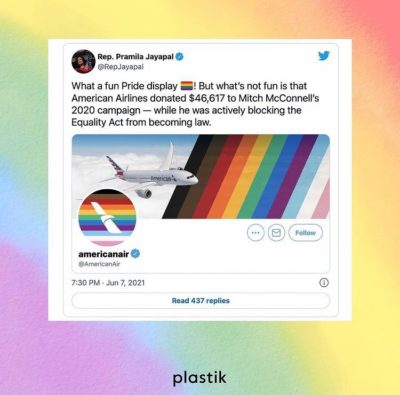
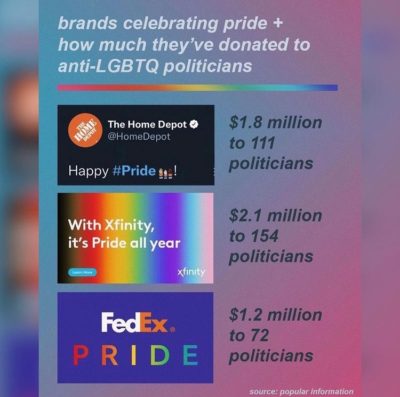
In a survey conducted by global decision intelligence company Morning Consult of 2200 adults in 2021, “31% of consumers said that companies that release statements about Pride are primarily motivated by the desire to get publicity.” A similar 34% felt the same way about companies that release Pride-themed merchandise.
And as Raven Smith puts it, “Every year during Pride Month, we see brand after brand slap a rainbow on a limited-edition box (or boxer shorts, for that matter), and they’re accused of performative lip service to “the community” without following through in any tangible way. We’re inundated with those incredibly glib “Brands when Pride Month’s over” memes that ridicule the ephemerality of their efforts, the nod to lazy activism.”
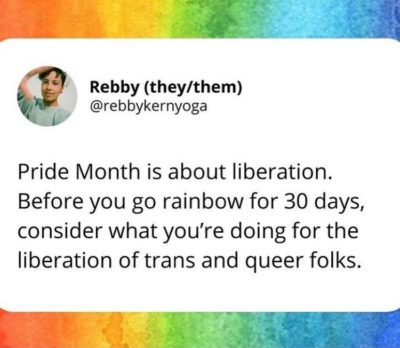
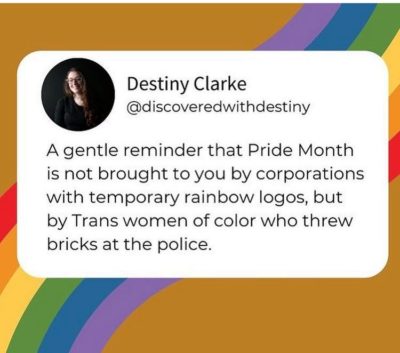
So how do brands avoid lazy activism and the ire of social media? It’s as simple as practicing what you preach. Make sure your internal company structure reflects the ethics that you are espousing publicly. In what ways is your company leading the way, and how do you embody the ideals of Pride month all year round?
Another important question to ask is, are you using your platform to elevate the voices of people in the community? A great example of this is the 2022 Dr. Martins ‘Pride Generation’ series that gives a shareable platform to some of the most active voices in the LGBTQIA+ community. In the clip below Lady Phyll, the co-founder of London Black Pride has a conversation with Lucia Blayke, the founder of London Trans+ Pride about their inspirations and hopes. It’s a powerful piece of marketing that demonstrates Dr. Martins commitment to elevating those voices at the center of Pride and also reminding consumers of the work that still needs to be done in the fight for equality.
Finally, in what ways moving forward is your brand going to create impact for the community at the center of the social issue you are engaging with? Spotlighting an issue is all well and good, but how are you practically using your influence to advance the needs of that community?
Keeping these questions at the top of mind when engaging with social issues online as a brand will help to make sure that your message matches your intention.





